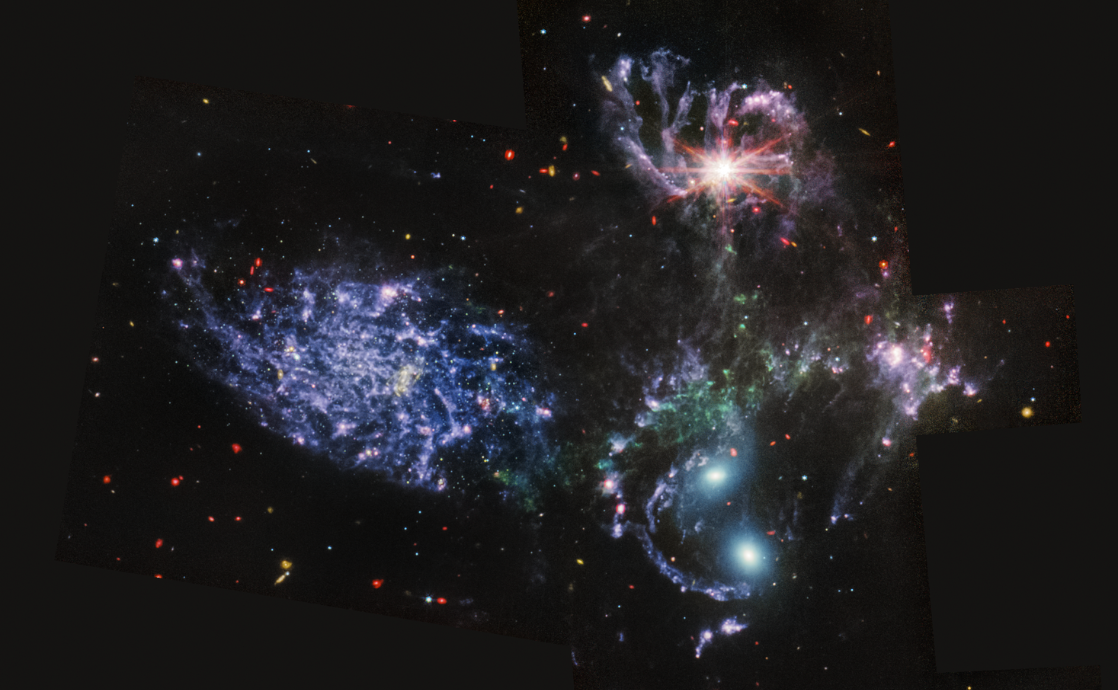In the grand tapestry of the cosmos, the intriguing question arises: Does life exist on other planets? This exploration finds remarkable resonance within the Bahá’í teachings, which eloquently delineate the relationship between humanity, the universe, and the divine. The very concept of a fine-tuned universe serves as a profound metaphor, inviting believers to contemplate the interplay of creation, purpose, and existence beyond the terrestrial realm.
At the heart of this discussion is the principle of unity, a cornerstone of Bahá’í belief. This tenet posits that all forms of life, whether on Earth or elsewhere, are interconnected manifestations of a singular divine source. Just as the intricate calibration of physical constants shapes the universe—allowing for life to thrive in its myriad forms—so too does the unity of humanity underpin the potential for existence beyond our planet.
The fine-tuned universe can be likened to a symphony; each celestial body, each cosmic event, contributes uniquely to the overall harmony. Astronomers and physicists have observed that the precise conditions necessary to support life as we know it are astoundingly rare. The balance between gravity, electromagnetism, and nuclear forces, along with the enigmatic dark matter and energy that permeate the cosmos, presents an exquisite orchestration that seemingly guides creation toward complexity. From a Bahá’í perspective, this precision is not incidental but indicative of a purposeful design. It is as if the divine hand meticulously set the stage, allowing for life to emerge wherever conditions permit.
This raises profound philosophical inquiries about our place in the universe. The Bahá’í writings advocate for a view that transcends anthropocentrism. Humanity is but one expression of life within a vast continuum. The question of extraterrestrial existence prompts an examination of our own spiritual evolution and the responsibilities we bear as stewards of this planet. Bahá’í insights encourage a recognition that the quest for knowledge encompasses not only our terrestrial environments but also the cosmos beyond, fostering a spirit of inquiry and humility.
The notion of life existing elsewhere is not foreign to the Bahá’í Faith; rather, it harmonizes with the teachings of progressive revelation. The Bahá’í writings assert that prophets and manifestations of divinity have appeared throughout history, each bringing revelations that are suited to the needs of the time. If life exists beyond our earthly domain, it stands to reason that those beings, too, would receive guidance appropriate to their circumstances. This perspective cultivates a sense of cosmic pluralism, inviting a broader understanding of divinity that encompasses various forms and expressions of life.
Moreover, the fine-tuned universe serves as a metaphor for the cultivation of the inner self. Just as the universe exhibits delicate balances, so too must individuals nurture their spiritual, emotional, and intellectual dimensions. By striving for personal development, Bahá’ís extend their understanding of love, compassion, and service. This inward journey reflects the cosmic dance between the known and the unknown—an endeavor that seeks to align the soul with the divine purpose inherent in creation.
In contemplating the existence of life beyond Earth, one may ponder the implications of such a discovery. If we were to encounter sentient beings from another world, how would we respond? Would our inherent biases and prejudices constrain our interactions, or could we rise above them, fostering relations grounded in the principles of unity and love? The Bahá’í teachings emphasize that such encounters would not only affirm our interconnectedness but also catalyze profound spiritual growth. Creating a dialogue between worlds, understanding diverse perspectives, and sharing knowledge are all part of the divine plan that transcends planetary boundaries.
This theme resonates powerfully with the current pursuit of astrobiology—the scientific endeavor to find life beyond Earth. As humanity explores Mars, the moons of Jupiter, and the enigmatic depths of exoplanets, these explorations reflect an intrinsic desire to understand the universe’s purpose. The Bahá’í perspective urges that scientific inquiries should be imbued with moral and ethical considerations, guiding humanity to safeguard both Earth and potential extraterrestrial environments. Ethical stewardship is a reflection of the broader cosmic responsibility of humanity, echoing the teachings of a divinely inspired harmony in all creation.
In conclusion, the Bahá’í understanding of a fine-tuned universe invites profound contemplation on the existence of life beyond Earth. It challenges humanity to recognize its interconnectedness, the infinite expressions of creation, and the spiritual imperatives that arise from such awareness. Life, whether in the form of gaseous clouds on distant planets or as sentient beings navigating the cosmos, embodies the divine essence that pervades all things. Therefore, engaging with the question of extraterrestrial life not only enriches our understanding of the universe but also deepens our appreciation for the divine unity that spans across existence, beckoning us to explore, learn, and perhaps ultimately unite in the shared pursuit of knowledge and understanding. This cosmic journey is not merely about finding answers but about embodying the principles that guide intelligent and compassionate existence in all forms.
